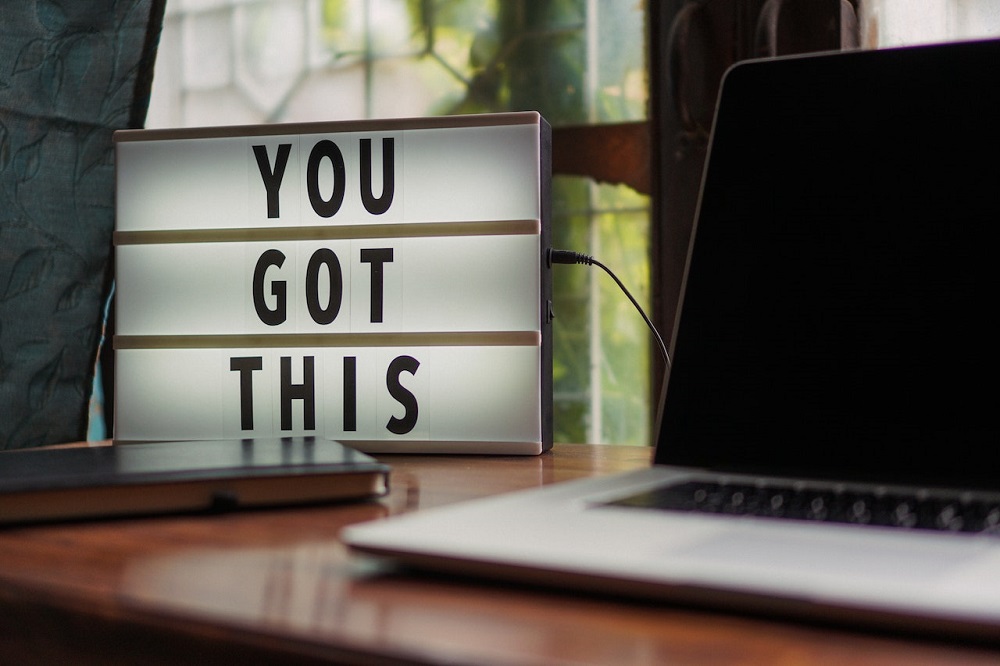
When you don’t have time, as most people are always struggling to meet school and work deadlines, you can maximize your time by increasing your focus. And mental breaks can help you do this.
Most of us are working all day long, and then come home to accomplish a friendly load of school work. Finding time and activities to increase your focus is almost impossible to muster up.
Some activities I’ve found that fit into my hectic life are yoga, music, drawing, painting, stretching, jumping jacks, running, walking, meditation, and focusing on my breath.

Meditation
This is a huge one for me. In addition to being a World Campus student, I’m an artist, drummer, bikram yogi, model, teacher, and musician. Bikram yoga calms my mind and I consider myself a devoted yogi to their practice. This is a different form of meditation, as you focus on the breath, and thus, focusing the mind while exerting physical movement.
Meditation is the best way to feel more “grounded” and “in your body” and for some, are able to be that much more “in the zone” than a cup of coffee (even though that has its benefits).
Meditation, can sound a bit weird, or unheard of, and you might think, “How do I do that?” It’s actually quite simple.
You can meditate, as a beginner, by first choosing a room that you will not be disturbed. Some of us have different tolerance levels, so choose a room you feel most comfortable in. You can grab a blanket, yoga mat, or throw, and lay it on the ground. It may help to drink tea right before hand, and not eat a huge meal.
Your primary goal (as a beginner) is to concentrate the mind and to focus on any one point in your room in front of you, straight on. In other words, pick a location on the wall, or an object in front of you, and focus on it. Your eyes should be half open, relaxed. As you focus on your breathing, you want to try and “catch” thoughts as they enter your mind, and dismiss them completely.
At first, you want to try and catch all of your thoughts, as it will increase concentration as you continue your practice daily. Eventually you will be able to just catch negative thoughts, as those are the ones that are most likely.
As a beginner, concentration is what you will be doing for a long time, some longer than others, to quiet the mind. In essence, no thought. And once you stop thinking – even in these small steps – will help make you more aware every time a thought does come into your mind when you meditate, and you will have a lot more control over it. Thus, expansion will increase dramatically in your brain and you will fire off tons of neurotransmitters which helps build memory and stress regulation.
After about two weeks at 5 minutes per day, you will think you are a pro, if you really put all your energy and concentration into it.
Dr. Emma Seppala thinks worlds of meditation, and researched meditation while obtaining a Ph.D. from Stanford. After her intensive study, here are some of the scientific benefits of meditating: makes you less lonely (YES, I can stay in and study on the weekends), increases gray matter, and improves your memory. Meditation decreases stress and anxiety (great for stress in school, amazing), and increases your focus and attention. I once wrote an essay in two hours compared to the 5 or 6 hours of time I had set aside for it. Pretty darn good, if you ask me. This was after I meditated for just about 40 minutes.
I also recommend the book Meditation by Sri Chinmoy. It offers great, profound insight for beginners and continues all the way into advanced teaching. I haven’t practiced the latter half of the book, yet I have gained so much in the first half over the last three years.
Going Outside
Even if you’re only sticking your head out the window, it is important to get fresh air during the day as well as in the evening. Increasing oxygen to the brain helps because negative ions are more abundant in the outside air.
Ions are created in the air in nature. The beauty of these things – waterfalls, mountains, oceans – are astounding – in so many ways – and yet we get an increase in our energy just by being around them. (Taking a shower releases negative ions – and it is just as good!)
Negative ions are more present where there is water, such as an ocean, or in the mountains. They decrease significantly in urban cities (by the thousands), so buying a plant that produces negative ions can actually help with this.
The Chinese evergreen is a good place to start, especially for those who just like to take care of watering, and not have to worry about the plant that much. It thrives in low light.
Music
This is one of my BIGGEST passions. I am a drummer of an alternative rock band called Sly Moth. I try to practice at least 5 hours a week. I am also on my way to learn the piano when I move to Sarasota, Florida, in February, which will become a part of my daily routine.
Not only does music build neurotransmitters in the brain (making me very mindful), playing a musical instrument decreases stress, anxiety, blood pressure, and depression. Even listening to music can have its benefits. I occasionally like to throw on Enya, Mozart, or any feel-good meditation music while I do some yoga or stretch.
John Carpente, founder of the Rebecca Center for Music Therapy in New York thinks the world of people listening to music. He says, “Undoubtedly, it’s one of the most engaging and emotionally powerful stimuli….Listening to music can have strong effects on people’s moods, thinking, and even their physiology.”
Even if you don’t know what you are doing, picking up the guitar and playing, can let off some steam like a good work out.




